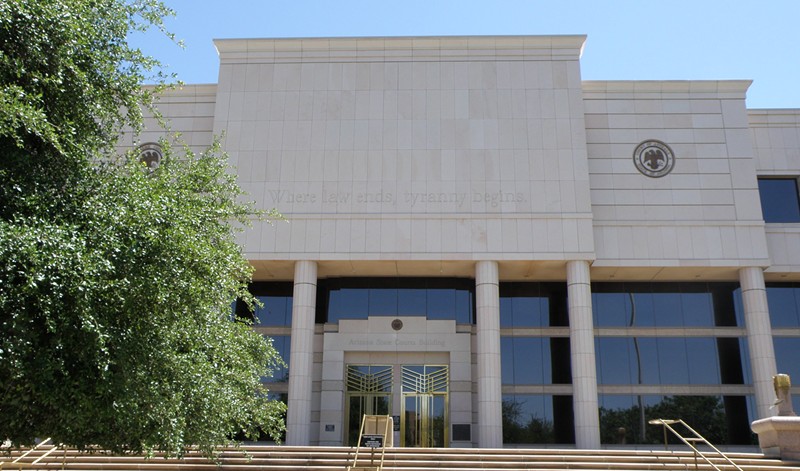Arizona Attorney General Kris Mayes said the decision was “one of the worst decisions in the history of the Arizona Supreme Court” and that it would “go down in history as a stain” on the state. Even Arizona Republicans such as former Gov. Doug Ducey said the reinstated law went too far. State lawmakers eventually repealed the 1864 ban, with a few swing-district Republicans crossing the aisle to vote with Democrats.
The court hardly could be blamed for its decision — the 2022 abortion ban passed by Republicans clearly stated that the 1864 law took precedence over the newer ban. Ducey signed that bill into law, knowing full well what the state Supreme Court would do if ever asked to weigh in.
That’s partly because Ducey played a large role in shaping the Arizona Supreme Court. He expanded the court from five justices to seven, stacking it with Republicans. He appointed five justices by the end of his governorship. Four of them ruled in favor of the 1864 law while one, Bill Montgomery, recused himself due to his past bombastic antiabortion statements.
The other two justices, who both voted in the minority for the abortion decision, were appointed by former Gov. Jan Brewer, also a Republican. Whether Democratic Gov. Katie Hobbs ever gets to fill a seat on the court depends largely on what happens in the election this November.
Rather than vote them onto the bench, Arizona voters are tasked with choosing to retain or dismiss judges on a rotating basis. This year, two Supreme Court justices who voted to reinstate the 1864 ban — Clint Bolick and Kathryn King — are up for retention.
At the same time, voters will decide the fate of Proposition 137, which could end term limits for state judges and limit the number of judges who face retention elections. Prop. 137 is also retroactive, meaning it would keep Bolick and King on the bench even if voters choose to boot them from it. Arizona voters have never unseated a state Supreme Court justice.
Whether or not voters preserve the right to decide the fates of judges in this election, it’s important to know who Arizona’s Supreme Court justices are. Broadly, the court decides whether to review lower court decisions and acts as the ultimate power among state courts. It also evaluates misconduct charges leveled against attorneys with the State Bar of Arizona.
Justices are required to have been admitted to practice law in Arizona and have been a resident of Arizona for 10 years. According to law, they must retire at age 70. In 2023, all seven justices made at least $205,000, with the chief justice making $7,000 more annually for overseeing “the administrative operations of all the courts in Arizona,” according to the Arizona Judicial Branch. Every five years, the justices decide among themselves who takes on the chief role.
Aside from the abortion decision, the Arizona Supreme Court has shot down bogus lawsuits attempting to overturn election results in the 2020 presidential and 2022 gubernatorial contests, among others. That earned all seven justices a censure from the Maricopa County Republican Party for not going along with the charade and handing victories to Republicans who did not win.
In another notable decision, the court decided a tax cut for the wealthy passed by Republicans and signed by Ducey could not be challenged in a referendum by organizers or decided on directly by voters. The court also ruled Kanye West could not appear on the ballot in the 2020 presidential race.
Here’s what to know about each Arizona Supreme Court justice.
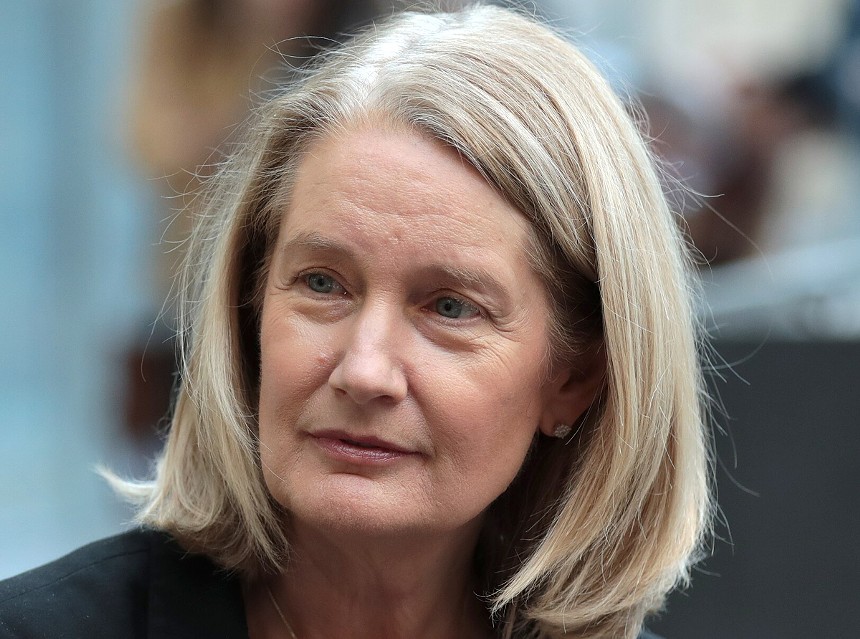
Arizona Supreme Court Chief Justice Ann Timmer was one of two dissenting votes when the court reinstated an 1864 near-total abortion ban.
Gage Skidmore/Wikimedia Commons/CC BY-SA 3.0
Chief Justice Ann Timmer
Timmer has been a member of the Arizona Supreme Court since October 2012, when Brewer appointed her. She became vice chief justice of the court in 2019 then chief justice this July, just months after the abortion ruling.After becoming chief justice, Timmer penned an op-ed for the Arizona Republic in which she lamented public perception of judges as “liberal” or “conservative” and discussed ideas for building more trust in the courts. Timmer's sister, Laurie Roberts, is a columnist for the Arizona Republic and has not been afraid to rebuke the court.
Timmer disagreed with Ducey’s appointees in the abortion case, voting against reinstating the near-total ban.
Prior to her appointment, Timmer served on the Arizona Court of Appeals for 12 years and was its chief judge for three. In 2022, Timmer was retained as a justice by Arizona voters, meaning she’s eligible to serve another four years. If retained in 2028, she could only serve until 2030, when she’ll reach mandatory retirement age.
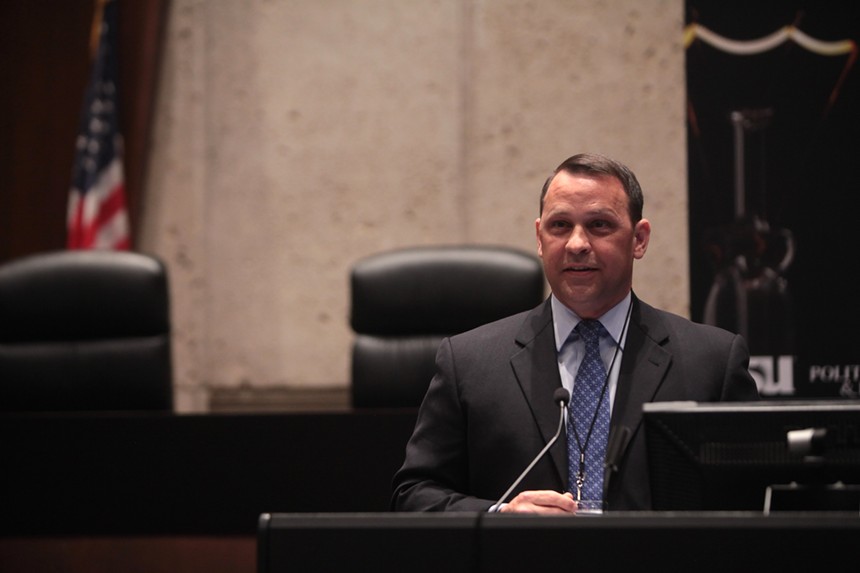
Arizona Supreme Court Vice Chief Justice John Lopez IV wrote the majority decision when the court upheld an 1864 near-total abortion ban.
Gage Skidmore/Flickr/CC BY-SA 2.0
Vice Chief Justice John Lopez IV
Lopez, a Ducey appointee, joined the court in 2017 as its first-ever Latino. Before that, he was solicitor general for the state of Arizona, a position in which he represented the state in court. He also worked for the United States Attorney's Office for more than 12 years and for six months was a legal advisor in Iraq for the prosecution of Saddam Hussein, according to KTAR.Lopez wrote the majority decision for the case reinstating Arizna’s territorial-era law outlawing abortion in almost all cases. He’ll be up for retention during the next election in 2026 unless Prop. 137 passes. He wouldn’t reach retirement age until 2038.
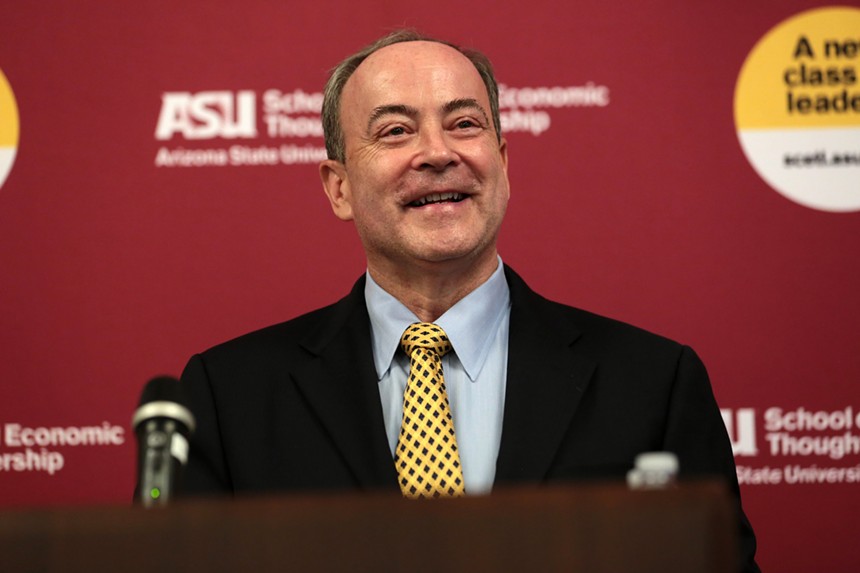
Arizona Supreme Court Justice Clint Bolick is one of two on the high court who could be removed from the bench by voters this November.
Gage Skidmore/Flickr/CC BY-SA 2.0
Justice Clint Bolick
Ducey appointed Bolick to the court in 2016. He’ll face his second retention election this year after voters chose to keep him on the bench in 2018. The passage of Prop. 137 would save his seat even if voters chose not to retain him, although Bolick is 66 and will have to retire before the end of his next term anyway.If anyone stands a chance to be recalled by voters in this election, it’s Bolick. Progress Arizona is leading a campaign to unseat Bolick and King, who both voted for the reinstatement of the abortion ban. In a Republic op-ed, Bolick argued that voters would be politicizing the court for calling for his ouster. Republic columnist EJ Montini called it a “paltry appeal,” noting the court already is politicized.
Bolick is married to state Sen. Shawnna Bolick, a Republican who also is running for reelection in North Phoenix. Rep. Bolick was one of the few GOP lawmakers to join Democrats in a vote to repeal the Civil War-era law.
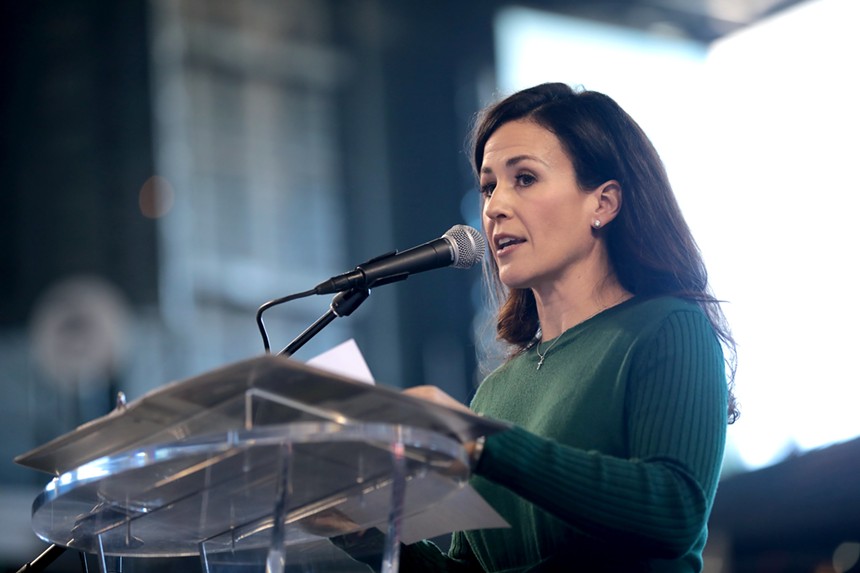
Arizona Supreme Court Justice Kathryn King faces a retention election this fall.
Gage Skidmore/Flickr/CC BY-SA 2.0
Justice Kathryn King
King is the most recent appointee to the court, named to the bench by Ducey in 2021. She’s up for her first retention vote on the November ballot. She’s one of the court’s youngest members and could serve in the court for the next several decades.Before joining the court, King was a partner at BurnsBarton PLC, where she specialized in defending companies in labor and employment disputes. She was also deputy general counsel for Ducey from 2015 to 2017. King is a graduate of Phoenix’s Xavier College Preparatory. Her father was a corporate and securities attorney, according to the Associated Press.
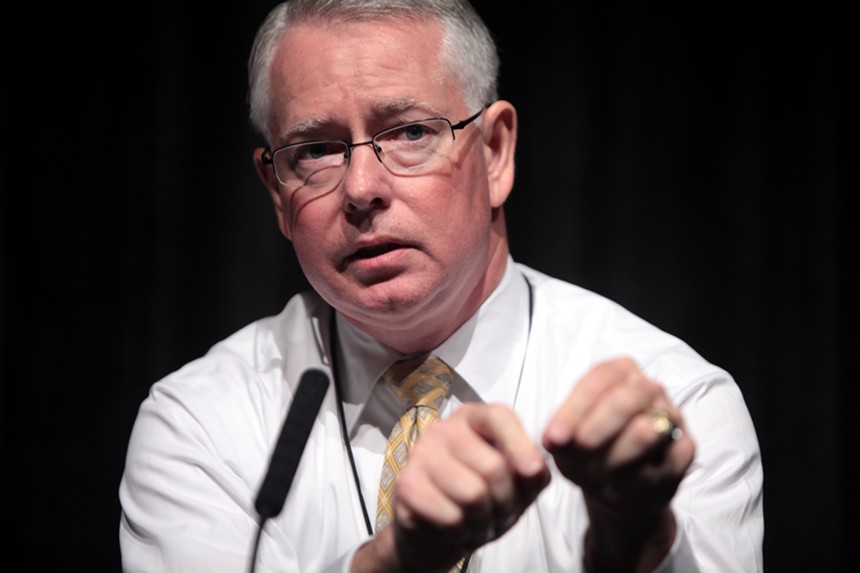
Arizona Supreme Court Justice Bill Montgomery recused himself from the case that ultimately resulted in the reinstatement of an 1864 near-total abortion ban.
Gage Skidmore/Creative Commons
Justice Bill Montgomery
Since being appointed to the court by Ducey in 2019, Montgomery has been the most notorious of the court’s seven justices. Phoenix New Times reported that Montgomery wrote in a since-deleted 2017 Facebook post that Planned Parenthood was responsible for “the greatest genocide known to man.” Only after public pressure and media reports about Montgomery’s history of antiabortion activism did he agree to recuse himself from the abortion case this year.Prior to joining the court, Montgomery served as the Maricopa County Attorney for almost all of the 2010s, where he was known for his tough-on-crime posturing and his vocal and influential opposition to criminal justice reform. Montgomery also held strong antimarijuana beliefs, referring to marijuana enthusiasts as “potheads” who he said were a “drag on this country.” After a Vietnam veteran explained how he used marijuana for back pain, Montgomery responded, “I have no respect for you.”
Montgomery’s current term ends in 2028, when he will be up for a retention vote if Prop. 137 fails this November.
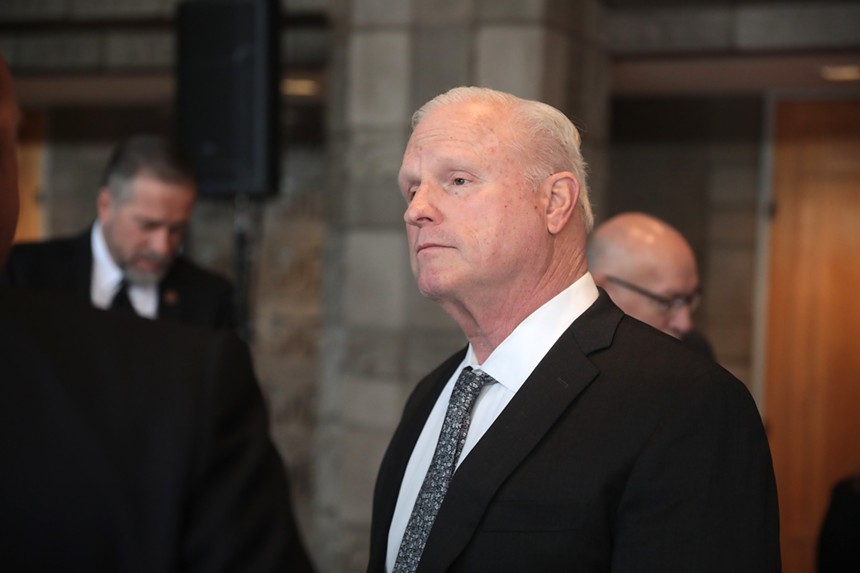
Arizona Supreme Court Justice Robert Brutinel dissented in the court's decision to reinstate a near-total abortion ban from 1864.
Gage Skidmore/Flickr/CC BY-SA 2.0
Justice Robert Brutinel
Brutinel is the longest-serving justice on the court, having been appointed in 2010 by Brewer. He was chief justice of the court from 2019 until earlier this year. Prior to joining the court, Brutinel was a judge for the Yavapai County Superior Court.Like fellow Brewer appointee Timmer, Brutinel dissented from the Supreme Court’s decision to reinstate Arizona’s 1864 near-total abortion ban.
Brutinel was retained by voters in 2020, meaning he could be up for retention again in 2026. However, Brutinel told the Arizona Republic he was considering retiring “sometime around 2025” and would be required to retire by 2028, when he turns 70. An early retirement could leave Hobbs her first appointment if the two justices are retained in this election.
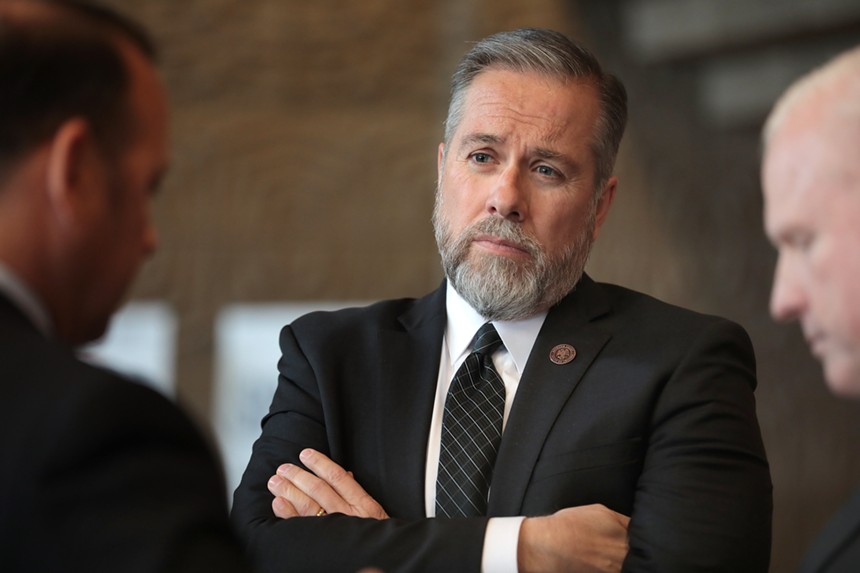
Arizona Supreme Court Justice James Beene served on the Arizona Court of Appeals and was a Maricopa County Superior Court judge before being named to the high court in 2019.
Gage Skidmore/Flickr/CC BY-SA 2.0
Justice James Beene
Before Ducey appointed Beene to the court in 2019, Beene spent two and a half years as an Arizona Court of Appeals judge and seven as a Maricopa County Superior Court judge. Beene was one of four justices who voted to reinstate the 1864 territorial law.Voters retained Beene in 2022. He has until 2028 to face voters again and until 2035 when he would be forced to retire from the court.

